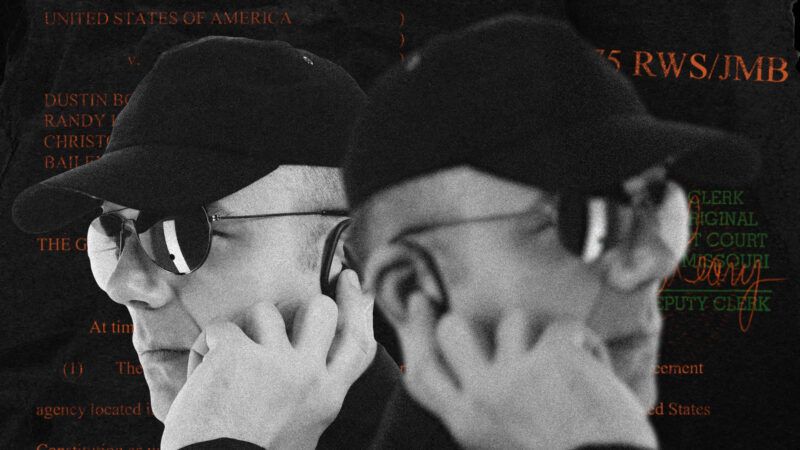Police Officers Brutally Beat an Undercover Cop During the St. Louis Protests. A Jury Declined To Hold Them Accountable.
Luther Hall was assaulted so severely he required a spinal fusion.

In September 2017, St. Louis police officers sought to quell riots in the city after a jury acquitted former officer Jason Stockley for the 2011 killing of Anthony Lamar Smith.
On September 15, a group of cops zeroed in on one protester in particular. They proceeded to beat him, according to an indictment filed against former officers Dustin Boone, Randy Hays, Christopher Myers, and Bailey Colletta, even though the man was not participating in the riots themselves. The cops allegedly shoved him to the ground, struck him with a baton, kicked him in the face, and assaulted him so brutally that he required multiple surgeries. Another officer, Steven Korte, who is still employed by the St. Louis Metropolitan Police Department, was charged separately.
But the man, Luther Hall, was not actually a protester. He was an undercover police officer dispatched to take down information about property destruction in the city.
"I couldn't believe it was happening," he told the jury in reference to the unprompted beating. Hall, who had been with the department 22 years at the time of the attack, lost 20 pounds as he was unable to eat solid foods for several weeks. He underwent spinal fusion to repair his neck, and doctors stitched his lip closed after the incident left a hole.
A jury on Monday declined to convict the three officers—Korte, Myers, and Boone—who pleaded not guilty. Specifically, they acquitted Korte and Myers of deprivation of rights and deadlocked on that count as it pertained to Boone. They also failed to reach a verdict on a charge against Korte for lying to the FBI and on a charge against Myers for destruction of evidence after he allegedly smashed Hall's phone.
Hays, who pleaded guilty to one count of deprivation or rights, testified that he hit Hall repeatedly with his baton and saw Korte kick him in the face. When asked twice if Hall was resisting, he said no. "After hindsight and reflection, I was in the wrong," he said on the stand, according to the local CBS affiliate.
Colletta also pleaded guilty to making false statements to the grand jury.
Text messages in the indictment show some of the officers expressing a mix of glee and satisfaction at the idea of assaulting protesters without consequence.
"It's gonna get IGNORANT tonight!!" reads a message from Boone. "But it's gonna be a lot of fun beating the hell out of these shitheads once the sun goes down and nobody can tell us apart!!!!" He later added that "we really need these fuckers to start acting up so we can have some fun" and that "it's still a blast beating people that deserve it."
"This shit is crazy ……. but it's fucking AWESOME too!" Boone wrote the day after he allegedly attacked Hall. He added unironically: "Except for cops getting hurt. People on the streets got FUCKED UP!"
On October 5, with some civil unrest still ongoing, Hays tried to share some strategy with the overeager Boone. "Remember were [sic] are in south city," wrote Hays. "They support us but also cameras. So make sure you have an old white dude as a witness." Hall is black.
Hall settled with the city in February for $5 million after suing both the department and the individual officers, and St. Louis was required to deliver that payout within 45 days.
Reason covered this story as the charges unfolded in 2018. Joe Setyon wrote:
The Rev. Darryl Gray, who helped organize the demonstrations, hopes the alleged assault of an undercover cop will help people understand there's a problem. "Maybe this police officer getting beat up by three of his own, who deliberately went out to hurt someone who was compliant and not resisting, maybe this is what is needed in this country and this city and this region to finally say, 'We have not gone far enough to hold police accountable,'" Gray tells The Washington Post.
Gray was right in some sense: Perpetrators of police malfeasance often hide behind qualified immunity, the doctrine that makes it difficult to hold state actors accountable in civil court. In that vein, Hall's settlement is, in some sense, progress. But if this week's verdicts are any indication, it appears he'll have a ways to go for justice.


Show Comments (33)